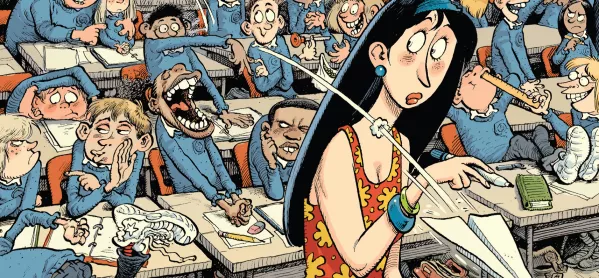What’s wrong? You look exasperated….
I am. I am struggling with a class clown: one of those students who thinks they are hilarious and likes to share their humour with the class - uninvited.
Ah, with the class clown you have to tread carefully. They are often lynchpins in the delicate game of behaviour management.
What do you mean?
A teenager with that much confidence is usually a leader of the pack. Get them on-side and you will have the class eating out of the palm of your hand. Make an enemy of them and you will be swimming against the tide.
Yes, I have begun to see that already. What are my options?
As with all students, you have to stick to the highest expectations of behaviour and use your school’s behaviour policy. At my school, we do one calm and firm verbal warning and then you are out of the classroom to work elsewhere.
I do that already - and I think I have been pretty consistent.
In that case, how early are you intervening? It is always worth trying to be one step ahead. I have found that acting early in a positive way against class clowns works well. A good way of doing this - aside from an excellent seating plan - is to get a positive phone call in early. Find something (anything) to praise and phone home. Typically, these are the kids who get countless “bad” phone calls home to complain about their “humour”, ergo, if you are the teacher who found a good thing to say, it raises expectations in that class and the child does tend to stifle much of their “hilarity”.
Also, can you can get them into a set or a class where the rest of the students are unlikely to respond to their shout outs? Then they will be unable to continue to do it.
But what if I don’t spot the symptoms early on and by January I am dealing with it on daily basis?
Unfortunately, you need to escalate. Simple as that. This type of behaviour can be fantastically disruptive and ultimately it is not showing you any respect. Therefore, it needs to be treated like any other “naughtiness”. But you need to investigate further, too. Sometimes this kind of attention-seeking behaviour is a cry for help and a mask for a serious pastoral issue. Talk to heads of year, tutors and parents - and to the student, too. Try and find out what is driving the behaviour.
Katie White is a secondary English teacher in Devon
Want to keep up with the latest education news and opinion? Follow Tes on Twitter and like Tes on Facebook





